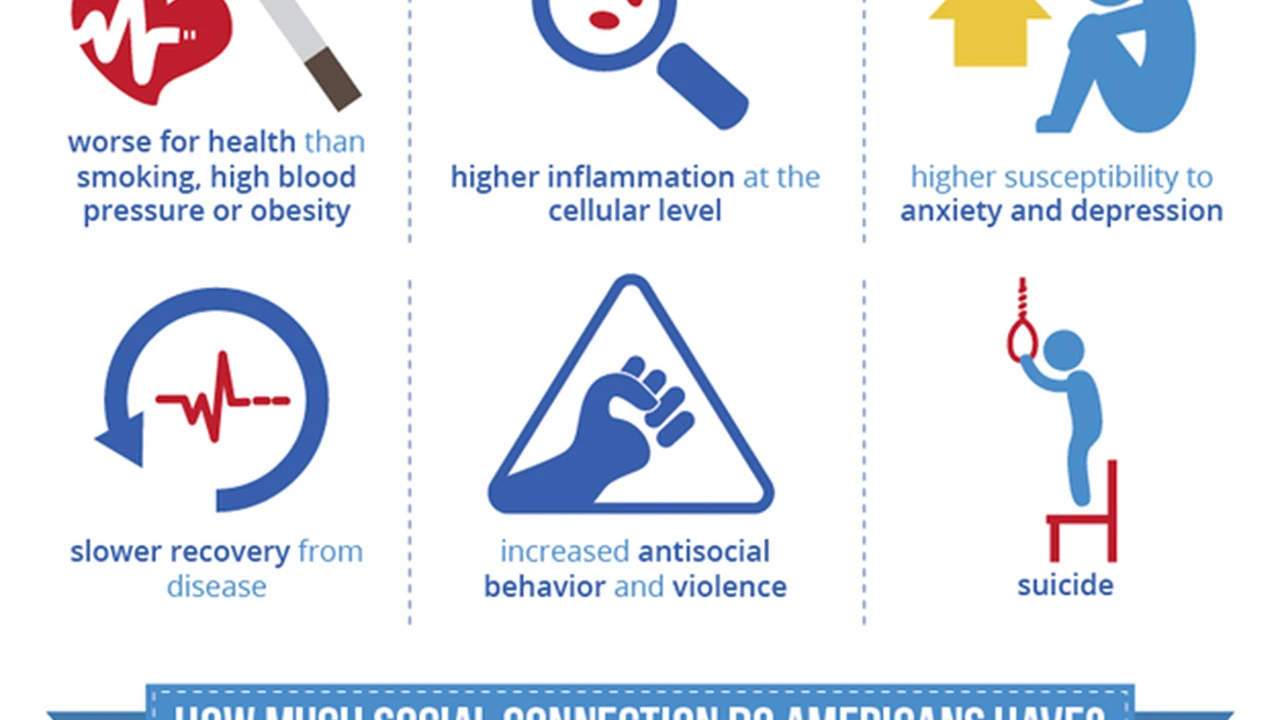The Importance of Social Connection for Mental Health
Social connection is crucial for mental health. This article explains how social interaction can reduce feelings of loneliness and isolation. Nurture your relationships and prioritize social connection for optimal mental well-being.

Social Interaction and Reduced Loneliness The Power of Human Connection
Humans are inherently social creatures. From the dawn of civilization, we've thrived in communities, relying on each other for survival, support, and companionship. This innate need for connection hasn't disappeared in the modern world, despite our increasing reliance on technology and digital interactions. In fact, social connection is more important than ever for maintaining good mental health. When we feel connected to others, we experience a sense of belonging, purpose, and self-worth. These feelings act as a buffer against stress, anxiety, and depression. Conversely, social isolation and loneliness can have devastating effects on our mental and physical well-being.
Combating Isolation The Mental Health Benefits of Strong Relationships
Loneliness isn't just about being alone; it's about the perceived discrepancy between desired and actual social connections. You can be surrounded by people and still feel profoundly lonely. Chronic loneliness is linked to a higher risk of depression, anxiety, cognitive decline, and even physical health problems like heart disease and weakened immune function. Strong social connections, on the other hand, provide a multitude of mental health benefits. They offer emotional support during difficult times, a sense of belonging and purpose, and opportunities for personal growth and development. When we feel supported and understood by others, we are better equipped to cope with stress, overcome challenges, and maintain a positive outlook on life.
Types of Social Connection Nurturing Diverse Relationships for Well-being
Social connection isn't a one-size-fits-all concept. It encompasses a wide range of relationships, each offering unique benefits. Some key types of social connection include:
- Family: Family relationships provide a sense of belonging, security, and unconditional love (ideally!). They can be a source of strength and support throughout life.
- Friends: Friendships offer companionship, fun, and opportunities for shared experiences. Friends provide a safe space to be yourself, share your thoughts and feelings, and receive honest feedback.
- Romantic Partners: Romantic relationships offer intimacy, passion, and emotional fulfillment. They provide a deep sense of connection and support, as well as opportunities for personal growth and shared goals.
- Colleagues: Workplace relationships can provide a sense of camaraderie, purpose, and professional support. Collaborating with colleagues can foster creativity, innovation, and a sense of accomplishment.
- Community Members: Connecting with people in your community can foster a sense of belonging, civic engagement, and shared responsibility. Volunteering, joining clubs, or participating in local events can help you build connections with like-minded individuals.
Strategies for Building Social Connections Overcoming Social Isolation
If you're feeling socially isolated or lonely, there are many steps you can take to build stronger connections with others. Here are some practical strategies:
- Reach Out to Existing Contacts: Start by reconnecting with friends and family members you haven't seen in a while. Send a text, make a phone call, or schedule a coffee date.
- Join a Club or Group: Find a club or group that aligns with your interests, whether it's a book club, hiking group, or volunteer organization. This is a great way to meet people who share your passions.
- Take a Class: Learning a new skill or hobby can be a fun way to meet new people and expand your social circle. Consider taking a cooking class, art class, or language course.
- Volunteer Your Time: Volunteering is a rewarding way to give back to your community and meet people who are passionate about making a difference.
- Attend Local Events: Check out local events in your area, such as concerts, festivals, or farmers markets. These events provide opportunities to mingle with people and discover new interests.
- Use Social Media Mindfully: While social media can sometimes contribute to feelings of isolation, it can also be a tool for connecting with others. Use social media to stay in touch with friends and family, join online communities, and find local events. But remember to limit your screen time and prioritize real-life interactions.
- Be Open and Approachable: Make an effort to smile, make eye contact, and initiate conversations with people you encounter in your daily life. You never know where a simple hello might lead.
- Practice Active Listening: When you're talking to someone, focus on truly listening to what they have to say. Ask questions, show empathy, and demonstrate that you care about their thoughts and feelings.
Recommended Products and Services for Enhancing Social Connection
While social connection is primarily about human interaction, certain products and services can facilitate and enhance these connections. Here are a few recommendations, along with their use cases, comparisons, and pricing:
Meetup Groups Facilitating Local Connections
Description: Meetup is a platform that allows you to find and join local groups based on your interests. It's a fantastic way to connect with people who share your hobbies, passions, or professional goals.
Use Cases: Finding hiking buddies, joining a book club, attending workshops, networking with professionals in your field.
Comparison: Other platforms like Eventbrite also list local events, but Meetup is specifically designed for building communities and fostering ongoing connections.
Pricing: Free to join groups. Organizers pay a fee to host groups, which helps keep the platform running.
Skillshare Online Classes and Community Building
Description: Skillshare is an online learning platform that offers a wide variety of classes in creative and professional fields. Many classes include community features, allowing you to connect with other students and instructors.
Use Cases: Learning a new skill (photography, graphic design, writing), connecting with other creatives, receiving feedback on your work.
Comparison: Platforms like Coursera and Udemy focus primarily on academic subjects. Skillshare emphasizes creative skills and community interaction.
Pricing: Subscription-based, with various plans available. A free trial is often offered.
VolunteerMatch Connecting You to Meaningful Opportunities
Description: VolunteerMatch is a website that connects volunteers with nonprofit organizations in their community. It's a great way to find meaningful volunteer opportunities and make a difference while meeting new people.
Use Cases: Volunteering at a local food bank, animal shelter, or environmental organization.
Comparison: Idealist is another platform for finding volunteer opportunities, but VolunteerMatch has a larger database of local organizations.
Pricing: Free for volunteers to use.
Fitness Classes and Group Activities
Description: Joining a fitness class can be a fun way to exercise and meet new people. Look for classes that emphasize teamwork and social interaction.
Use Cases: Zumba, CrossFit, group hiking, team sports.
Comparison: Gym memberships offer access to equipment, but fitness classes provide a structured environment and opportunities to connect with others.
Pricing: Varies depending on the class and location. Many gyms offer introductory packages or free trials.
Language Exchange Apps Tandem and HelloTalk
Description: Tandem and HelloTalk connect you with native speakers of other languages who want to learn your language. You can practice speaking, writing, and listening skills while making new friends from around the world.
Use Cases: Learning a new language, practicing conversation skills, making international friends.
Comparison: Duolingo focuses on grammar and vocabulary, while Tandem and HelloTalk prioritize conversational practice.
Pricing: Free to use with basic features. Premium subscriptions offer additional benefits, such as unlimited translations and ad-free experience.
The Long-Term Investment Social Connection for a Healthier Life
Prioritizing social connection is an investment in your long-term mental and physical health. It's about nurturing your relationships, building a strong support network, and actively engaging in your community. By making social connection a priority, you can reduce feelings of loneliness and isolation, improve your overall well-being, and live a more fulfilling life. So, reach out to a friend, join a group, or volunteer your time. Your mental health will thank you for it.
:max_bytes(150000):strip_icc()/277019-baked-pork-chops-with-cream-of-mushroom-soup-DDMFS-beauty-4x3-BG-7505-5762b731cf30447d9cbbbbbf387beafa.jpg)






